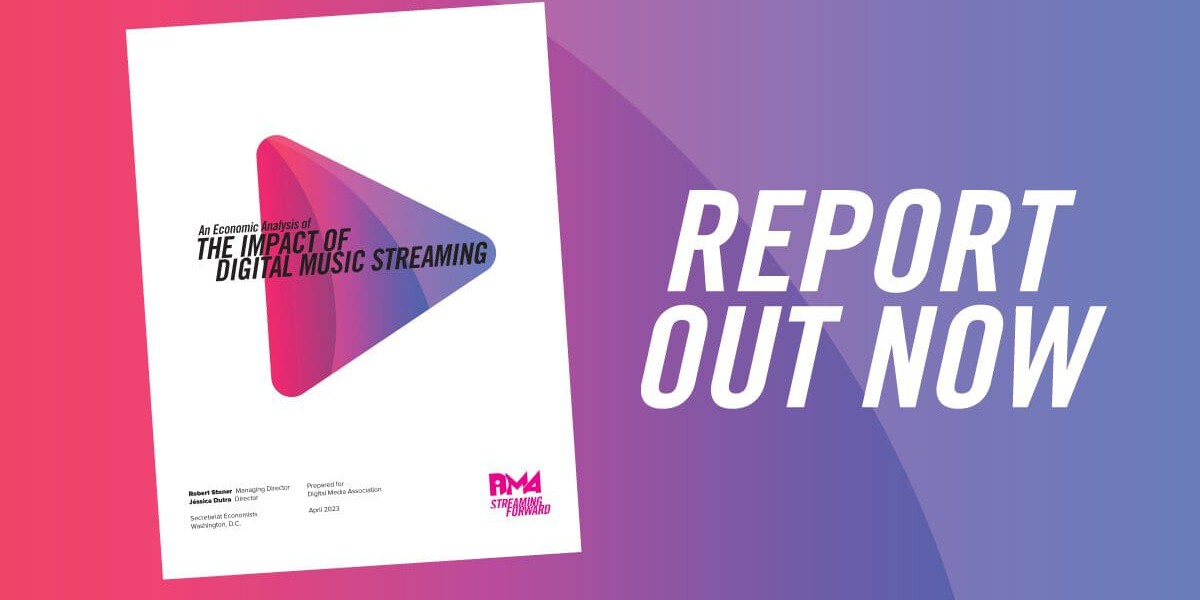Music Streaming Services Give the U.S. Economy an Outsized Push
April 11, 2023 | DIMA Blog
Garrett Levin, DiMA President and CEO
Research conducted by economists at Secretariat, and commissioned by DiMA, opens a new conversation about how streaming services contribute to jobs and the U.S. economy.
We know from past research that streaming helps fans discover new genres, re-discover old favorites, and makes them bigger fans of their favorite music. Fans love streaming and rightsholders are earning billions of dollars from the royalties generated from those fans. Streaming is the number one way fans discover new music, comprising 84% of recorded music revenues in 2022 (to the tune of $13.3 billion), and contributing 61.5% to the increased economic value of music transactions in 2021 (when artists or songwriters sell their catalogs).
As music streaming has become the dominant mode of listening in the United States, and the largest driver of revenue to the recorded music industry, much ink has been used discussing its role in the industry and its beneficial contributions. Less attention has been paid to streaming’s impact on the broader economy.
According to Secretariat’s economic study, digital music streaming, in the U.S. alone, contributed $14.32 billion to the gross domestic product of the U.S. economy in 2021.
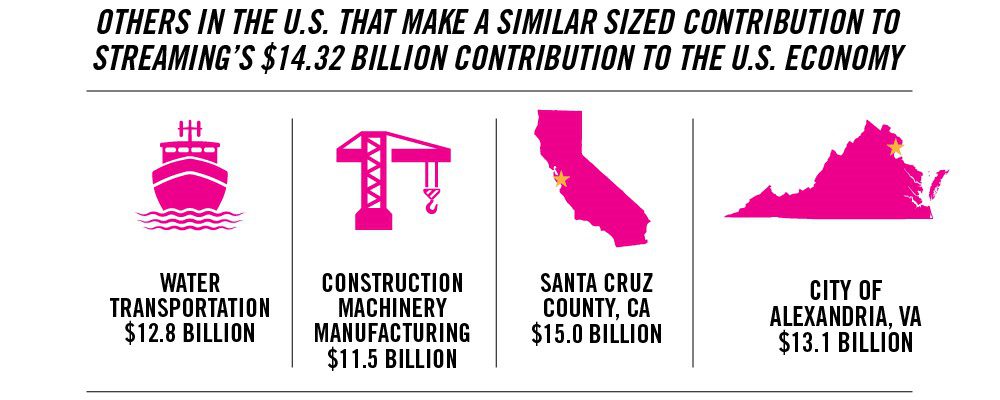
The contribution from streaming is similar in impact to those made by the economies of Santa Cruz County, California ($15 billion), Alexandria, Virginia ($13.1 billion), and greater than contributions of the U.S. construction machinery manufacturing industry ($11.5 billion). Beyond this headline figure, the study provides compelling new analysis about jobs, growth, and the impact music streaming is having on workers and businesses – not just in the music industry – but across the U.S. economy.
The study also found, each job within the music streaming industry results in nine additional jobs in other industries in the U.S. economy that support streaming services and their workers. In 2021, this amounted to 92,000 total jobs across the economy.
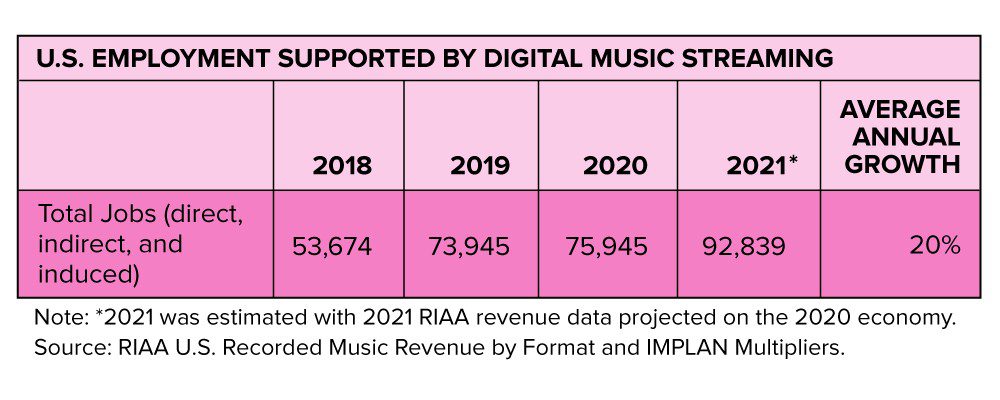
These jobs cross industries and professions not necessarily associated with music, and, in good news for the future, the analysis found this job creation growth has been occurring at an annual rate of 20% even as some years show more growth than others.
The positives don’t stop with job creation. The economists behind this report also recognized and quantified how the music streaming industry’s success extends to other industries. Music streaming is a force multiplier for the economy.
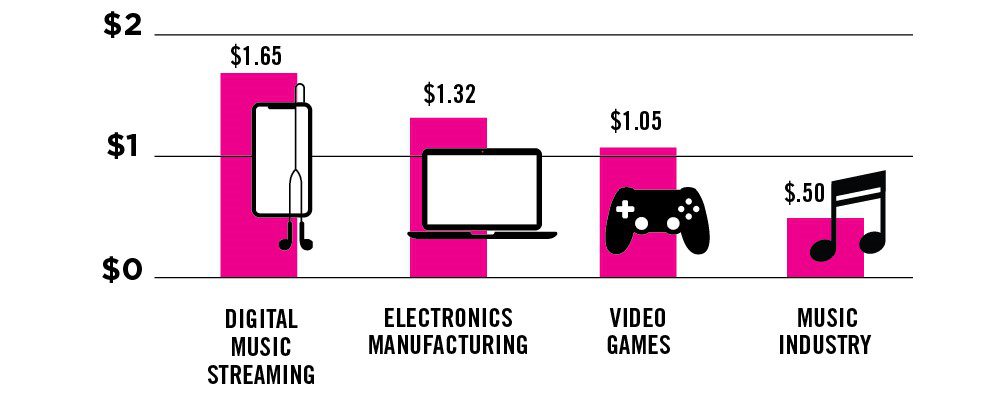
In numerical terms, the study found that for every $1 generated in digital music streaming, other industries impacted by streaming services generate $1.65 in value added. This is significantly higher than multiplier values generated by electronics manufacturing ($1.32) or video games ($1.05) and more than three times the multiplier value generated by the music industry as a whole.
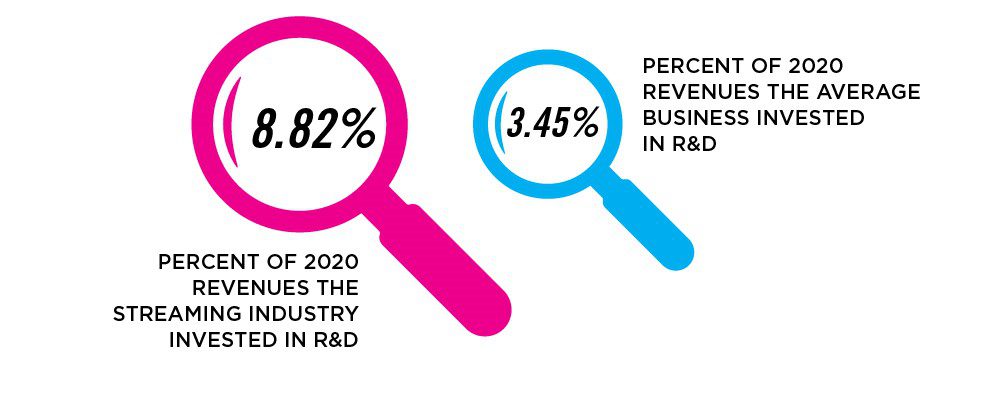
Music streaming services invested an estimated 8.82% of revenue in research and development in 2020 – an amount more than the twice the investment level of the average industry. R&D is critical to the relentless deployment of innovative features to improve both the fan and creator experience with streaming. And streaming services are making these investments while operating on lower profit margins than distribution models of the past. These investments in R&D may be one reason why streaming services disproportionately (for their size) contribute to the economy, including in their impact on employment in different industries.
Streaming means unlimited shelf space; it means personalization and customization; it means removing old barriers for creators; access to the world’s music at your fingertips. All of those features have real economic impacts, and as this new report shows, those positive benefits extend to the broader economy. As understanding of the relationship among fans, artists, and streaming services increases, this economic study underscores that many inside and outside the music industry are positioned to share in its continued success.
